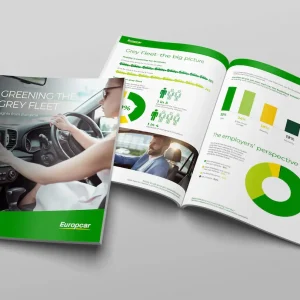
There were 17.1 million working days lost to stress, depression or anxiety in Great Britain in 2022/23. 10%–20% of collisions are estimated to be caused by driver fatigue, and the suicide rate for van drivers is 25% higher than the national average.
Drivers who are stressed or fatigued are more likely to make errors. Experts warn that if a driver doesn’t stop and take a nap when they’re tired they’re more likely to have a microsleep while driving and could travel 200 metres without knowing it.
Health and safety legislation and the corporate manslaughter act mean that you, as an employer, owe a duty of care to at-work drivers. But how can you spot the signs that a driver is suffering from poor mental health and what action can you take?
Certain key indicators may offer an insight. Has their incident rate gone up? Are they absent from work more often? Are they late for work and unreliable? Has their performance dipped? If your vehicles are fitted with telematics, is the data showing changes in behaviour?
But it’s not just about data. Nurturing an open culture about driver wellbeing can encourage drivers to feel safe coming forward themselves, or for their work colleagues to advise you of their concerns.
To achieve this, it’s important to build relationships with drivers. Set realistic driver schedules, and avoid putting drivers under pressure by planning schedules which don’t allow for rest breaks. Have dedicated mental health first aiders or mental health champions to create a positive work experience and provide support for employees.
“At Grosvenor Leasing, we have a dedicated team of mental health first-aiders to offer staff someone to turn to if they need help or support,” said Lee Brown, managing director.
“They provide front-line support and advice, backed by an extensive wellbeing campaign.
“We also encourage conversation through active participation in key events, such as Mental Health Week, National Thank You Day and National Stress Awareness Day, and we also have staff yoga sessions, a table tennis league, dress down days, ‘pizza Fridays’, team quizzes, and guest speakers on mental health.
“For our customers, we have a complete Drive Care programme that is designed to make drivers safer on the road, with wellbeing being a key aspect of our approach.”
Other key areas for supporting employee wellbeing include employee assistance programmes (EAPs), health screenings, offering employee health benefits, promoting healthy eating and reward and recognition schemes.
Tel: 01536 536 536
Email: info@grosvenor-leasing.co.uk





